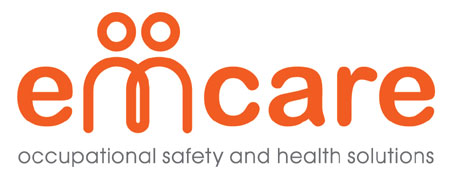In today’s workplace, mental health is not just a personal matter, it’s a business issue. That is why health training like mental health training for staff is vital. Scottish employers of all sizes should recognise the value of having a trained Mental Health First Aider (MHFA) on site. Beyond goodwill, it helps manage risk, improves wellbeing, and supports productivity in industries from rural farming to oil and gas and education.
What Mental Health First Aiders Are Legally and Practically Allowed to Do
A Mental Health First Aider in Scotland is trained to spot early warning signs, offer initial support, and guide individuals to professional help. Legally, this role does not replace therapy or counselling. Practically, an MHFA provides immediate, peer‑level support in times of distress, appropriate reassurance, initial comfort, and signposting to services. In sectors such as oil and gas with remote sites, rural workforces facing isolation, or education where staff and students cope with stress, having onsite support helps prevent crises and reduce absence.
Breakdown of the MHFA Structure in the UK
MHFA training in Scotland follows a structured approach:
- Spot early warning signs, such as changes in mood, behaviour, or performance.
- Start a supportive conversation using active, non‑judgemental listening.
- Offer immediate help, including reassurance and encouragement.
- Signpost effectively to professional or organisational resources.
- Follow up and support recovery where needed.
This framework, often referred to as ALGEE (Approach, Listen, Give reassurance, Encourage professional help, Encourage self‑help), makes it clear how MHFA works in practice.
Common Misconceptions
A key misconception is believing that a Mental Health First Aider is like a therapist. That is not correct. This is peer support, not clinical intervention. MHFA Scotland emphasises that its course does not train people to be mental health workers but offers essential acquaintance with mental health issues and confidence to intervene early. This distinction is particularly important for Scottish SMEs and larger employers.
A Day in the Life of a Mental Health First Aider in a Glasgow Tech Firm
Maria works as an MHFA in a bustling Glasgow tech company. One morning she notes a colleague showing signs of anxiety: reduced output and visible stress. Using skills from her training, Maria approaches gently, listens without judgement, and encourages a short break. She guides them toward an employee assistance programme and offers to check in later. Later, she sends a helpful resource guide. That simple intervention averted burnout, built trust, and reinforced the culture of care. Scenes like this happen every day thanks to trained MHFAs.
Insights into MHFA Scotland Training Modules vs England‑based Providers
MHFA Scotland is accredited and quality‑assured by Public Health Scotland. Courses span 12 hours and can be delivered over two full days or split into shorter sessions. Modules include understanding depression, anxiety, psychosis, substance misuse, listening skills, suicide intervention, and self‑harm awareness. Trainers often include lived‑experience facilitators who make learning relevant and relatable. This training differs from England‑based providers by being subsidised via Scottish Government funding and closely monitored for quality via NHS Health Scotland. It is delivered face‑to‑face only, with small class sizes to encourage engagement and confidence.
The Business Case: Tangible Benefits for Employers in Scotland
Mental health in the workplace is no longer a background issue, it is a business-critical concern. For employers in Scotland, appointing a Mental Health First Aider through structured aid training is a practical, strategic investment. It not only enhances employee wellbeing but also delivers measurable returns by reducing absenteeism, improving productivity, and fostering a healthier workplace culture.
Mental health and productivity across Scottish industries
Scotland’s major sectors, hospitality, education, oil and gas, and public services, face unique stressors that make them especially vulnerable to mental health challenges.
- Hospitality: High turnover and unpredictable hours can lead to burnout and anxiety.
- Education: Emotional strain and heavy workloads impact teacher morale and performance.
- Oil and Gas: Isolation and high-stress environments increase mental health risks.
- Public Services: Budget constraints and service demands raise stress levels.
In each of these sectors, a proactive approach to mental wellbeing can help prevent a mental health crisis from affecting team performance and morale.
Mental health-related absences: Scotland vs the UK
Mental health-related absence rates in Scotland remain higher than many other UK regions. The cost of absenteeism is substantial, but so is the potential for positive change.
- Mental health absences cost UK employers over £56 billion annually.
- Scotland shows higher-than-average rates in education and public service sectors.
- Investing in workplace support reduces both short-term sick leave and long-term absence.
Tackling this issue directly helps teams stay resilient and reduces the business impact of a health crisis.
Creating a culture shift in the Scottish workplace
Many Scottish workplaces have traditionally been reserved, with limited conversations around mental health. However, Mental Health First Aid training is helping to drive a cultural transformation.
- Promotes openness and reduces stigma around mental health discussions.
- Encourages early intervention and peer-to-peer support.
- Builds trust between staff and management.
This shift not only benefits individual wellbeing but also enhances the overall workplace environment.
A real-world example from Aberdeen
Some businesses in Scotland have already seen the return on investing in mental health support.
- An Aberdeen-based company introduced MHFA training across teams.
- Within a year, they recorded a 26% reduction in sick leave.
- The company reported improved team morale and more confident management.
These numbers show that even small initiatives can lead to meaningful business outcomes.
Attracting and retaining top Scottish talent
Today’s workforce expects more than just a paycheck. Younger employees in particular value mental health support as part of company culture.
- 1 in 2 young workers say workplace mental health support influences job choice.
- Businesses offering MHFA programs are seen as progressive and caring.
- Strong wellbeing policies help retain top talent and reduce staff turnover.
Understanding Legal, Cultural, and Regional Responsibilities
Supporting employee wellbeing is no longer optional, it is a legal, cultural, and operational necessity for every workplace in Scotland. Understanding the responsibilities involved is essential for the successful implementation of Mental Health First Aid (MHFA). From legal obligations to regional attitudes, each factor plays a role in shaping effective mental health support in the workplace.
Legal Duties: Health and Safety at Work Act 1974
Under the Health and Safety at Work Act 1974, employers are required to ensure the health, safety, and welfare of their employees. This extends to mental health, making it essential to prepare for issues like a mental health crisis.
Key legal responsibilities include:
- Taking reasonable steps to protect employees from mental health risks.
- Ensuring policies and procedures include mental wellbeing as part of overall health.
- Providing training, such as MHFA, to promote awareness and early response.
Scotland’s Mental Health Strategy and Government Support
The Scottish Government’s Mental Health Strategy promotes proactive mental health support in all sectors. MHFA training aligns with this national effort by supporting early intervention and fostering resilience at work.
This strategy encourages:
- A preventative approach to mental health challenges.
- Empowering workplaces to offer support before issues escalate.
- Aligning business practices with national wellbeing goals.
Differences Between Public and Private Sector Responsibilities
Public sector organisations often have more structured mental health frameworks. In contrast, private businesses vary in approach but still share the same responsibilities.
Comparison highlights:
- Public Sector: Often guided by NHS Scotland and includes formal internal wellbeing programmes.
- Private Sector: May have more flexible approaches but benefit from MHFA to meet legal standards efficiently.
- Both sectors use MHFA to build internal capacity for supporting mental health.
Supporting Compliance with HSE and Equality Laws
MHFA training assists employers in meeting requirements under:
- HSE stress risk assessments by identifying and addressing workplace stressors.
- The Equality Act 2010, which protects individuals with long-term mental health conditions from discrimination.
MHFA contributes by:
- Providing practical tools to support staff under stress.
- Encouraging fair treatment and inclusion across roles and responsibilities.
- Enhancing workplace readiness to respond to mental health needs.
Cultural and Regional Factors in Scotland
Addressing mental health stigma requires understanding local attitudes, especially in:
- Rural Scottish communities, where access to support may be limited.
- Male-dominated industries, where discussing mental health is often seen as a sign of weakness.
MHFA training helps by:
- Delivering culturally relevant support strategies.
- Encouraging open dialogue and breaking long-standing stigma.
- Empowering local teams to support one another with confidence.
Practical Implementation in a Scottish Workplace
Supporting mental wellbeing at work is no longer just a nice-to-have, it is a vital part of any modern organisation’s commitment to its people. In Scotland, introducing Mental Health First Aiders (MHFA) into the workplace is an effective way to build a supportive environment and meet growing employee expectations around mental health. However, successful implementation requires thoughtful planning and ongoing support.
Tailoring MHFA to Business Size
Whether you are a micro-business in Dundee or a large corporate office in Edinburgh, MHFA can be tailored to fit your structure and resources. Small businesses may benefit from training a single employee as an MHFA and embedding that role into daily operations. In contrast, larger companies often establish a full network of trained MHFAs across departments, making sure support is accessible at every level. Flexibility in course delivery, such as part-time or modular sessions, ensures even smaller teams can participate without disrupting business flow.
Steps to Create a Sustainable MHFA Framework
Creating a lasting impact requires more than just training. Employers should follow a clear framework:
- Recruit: Identify team members who are approachable, trustworthy, and interested in the role.
- Train: Choose accredited MHFA courses that match your workplace’s needs, whether online or in person.
- Support: After training, ensure MHFAs are recognised, backed by management, and have access to supervision or peer support.
- Review: Set regular check-ins to assess the programme’s effectiveness, gather feedback, and make necessary adjustments.
By treating MHFA as an evolving element of your wellbeing strategy, you build credibility and ensure long-term engagement.
Choosing the Right MHFA Provider in Scotland
Selecting the right MHFA training provider is essential. Look for organisations accredited by Public Health Scotland or established mental health bodies. Consider your team’s preferred learning style when choosing between in-person vs. online options. In-person training may offer deeper connection and role-play opportunities, while online courses are flexible and accessible for remote or hybrid teams. Some providers also offer bespoke content tailored to your industry, which adds even more value.
Beyond the Badge: Embedding MHFA into the Workplace
MHFA should not be a standalone initiative. To maximise its impact:
- Integrate MHFA awareness into induction training so new staff know who to turn to from day one.
- Promote your MHFAs as part of your broader employee assistance programme (EAP).
- Include regular wellbeing check-ins, mental health campaigns, and anonymous feedback tools.
Embedding MHFA into your everyday practices shows that your commitment goes beyond ticking a box, it demonstrates a genuine effort to prioritise mental health.


